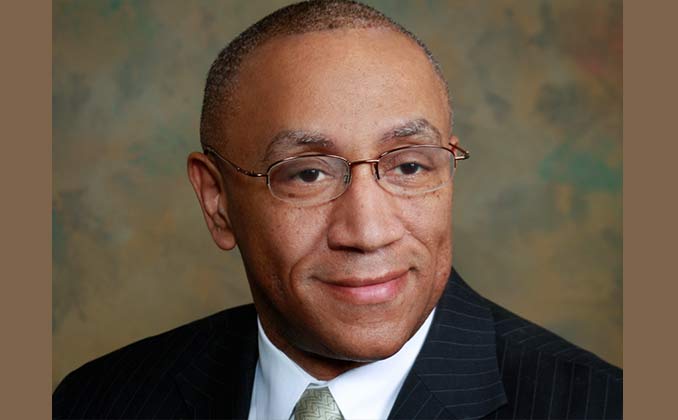Ignite | Spring 2022
Duane Taylor: Breaking Color Barriers
Persistent.
In conversation, Duane Taylor, M.D. (’85), doesn’t use that word to describe himself, but it suits a man who has spent his whole 37-year career in medicine working to promote diversity in medicine.
 To this otolaryngologist, the word diversity holds many meanings. He started cultivating a broad worldview by traveling with his parents at an early age. His father was a scientist overseeing a microbiology immunology department in Cleveland; his mother, a school principal who had been a Fulbright scholar at La Sorbonne in France. Spending his senior year of high school as a page on Capitol Hill exposed the Shaker Heights, Ohio native to the ways of government — a universe of its own.
To this otolaryngologist, the word diversity holds many meanings. He started cultivating a broad worldview by traveling with his parents at an early age. His father was a scientist overseeing a microbiology immunology department in Cleveland; his mother, a school principal who had been a Fulbright scholar at La Sorbonne in France. Spending his senior year of high school as a page on Capitol Hill exposed the Shaker Heights, Ohio native to the ways of government — a universe of its own.
The need to advocate
Early on, Dr. Taylor felt the need to advocate for better representation of those who lacked a voice. A first taste of involvement at the national level came when Dr. Taylor represented the Washington, D.C., area of the Young Physicians Section of the American Medical Association. He was part of the group of physicians who started what is now known as the Minority Physicians Section of the AMA.
In 2019, Dr. Taylor broke a barrier by becoming the first Black president of the American Academy of Otolaryngology — Head and Neck Surgery — a year of leadership defined by the COVID-19 pandemic and the heightened awareness of social justice issues. Dr. Taylor had earlier led and supported the development of seminars and conferences to look at health equity, health disparities, health literacy and other social determinants of health. During his presidency, a Diversity, Equity and Inclusion task force became a committee with a seat on the Board of Directors.
“Now, of course, I had to have the support of leaders and sometimes it’s the right place at the right time — and the right person. But after many years of trying to do this, I said, if you give us the template, I will make sure these things happen,” he said in a Zoom interview from Bethesda, Maryland, where he is the medical director of Le Visage ENT & Facial Plastic Surgery.
“If you open your mouth, you have got to be ready to walk the walk and to make it happen,” Dr. Taylor said with a smile. During his year as president, the Academy board obtained funding to produce a series of 10 educational videos on implicit bias in areas including not only race but also religion, ethnicity and gender.
Propelling the next generation
Today, Dr. Taylor serves as an ex-officio member of the Academy’s Diversity, Equity and Inclusion Committee, which has two endowments he helped to fund and develop. The Harry Barnes Endowment Travel Grant (named for the first African American physician to be board-certified in otolaryngology) funds underrepresented minority students of African descent from Canada, the Caribbean and the U.S. to attend the AAO’s annual conference. The Diversity Endowment URM Away Rotation Grant helps to pay for away otolaryngology rotations by underrepresented minorities during their senior year of medical school.
From the beginning, Dr. Taylor has been involved with the National Medical Association — the largest organization of African American physicians in the county. That followed naturally from his days at NEOMED, when he was the only Black student in his class and participated in NEOMED’s chapter of the Student National Medical Association, an organization for underrepresented minority medical students. As NEOMED has become much more diverse — 30% of its 2021 College of Medicine class is underrepresented minority students — Dr. Taylor serves on its President’s Diversity and Equity Advisory Council to ensure that the progress is sustained.
He also stresses the importance of opening doors in his specialty of otolaryngology, “which isn’t very diverse,” says Dr. Taylor, who often collaborates with the Academy’s Women in Medicine section. One of the five most competitive specialties, otolaryngology has the fewest African American students entering into residencies, he notes.
“Is leadership an opportunity or an obligation?” he asks, rhetorically. “These are the things I considered each time a door opened for me.”
